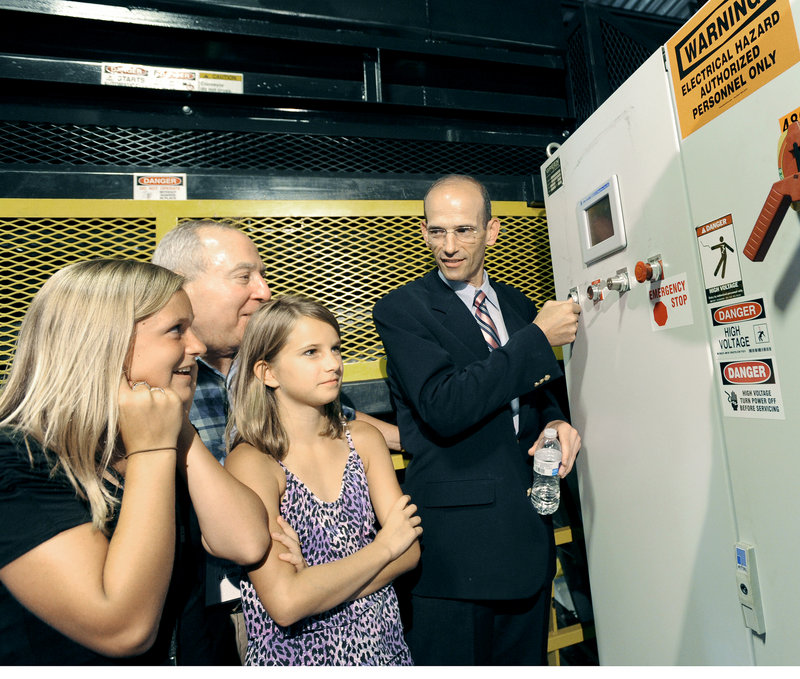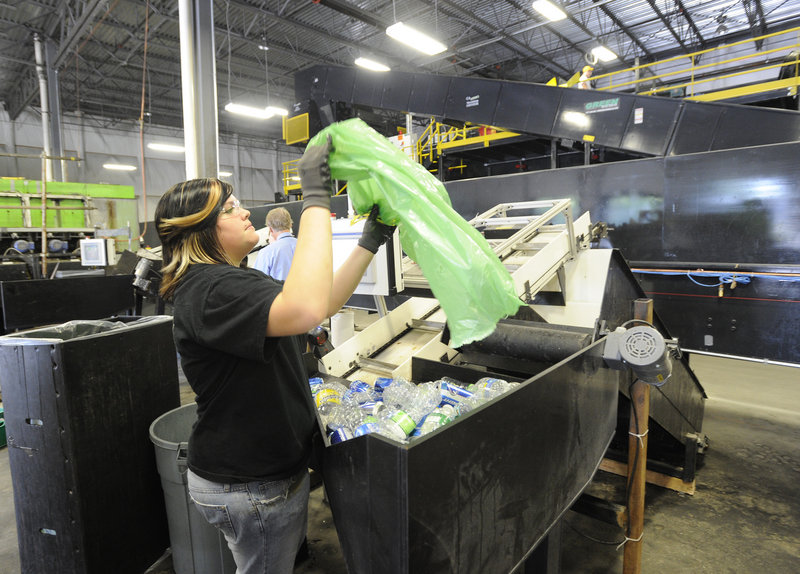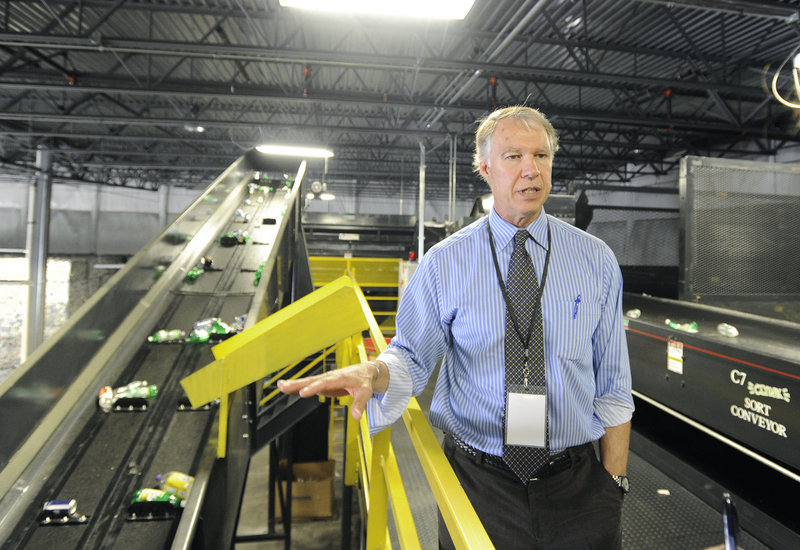SOUTH PORTLAND – The machine roared to life and the conveyor belts picked up speed Thursday morning when Gov. John Baldacci activated the new more efficient sorting system for the container redemption company CLYNK.
The $1.1 million system, which includes a processing line and 10 sorting stations, boasts a higher capacity that will prime the company for future expansion.
“It saves us a lot of time and a lot of energy,” Clayton Kyle, Clynk’s CEO, said of the patented system.
Five-year-old South Portland-based CLYNK has kiosks in 33 Hannaford supermarkets in Maine and expects to expand to another 13 by the end of the year. The company expects to process 70 million containers this year and increase its accounts to 80,000, up from 55,000 currently.
The new system took about a year to develop and was partially funded by a $500,000 Maine Institute of Technology development award. CLYNK also received nearly $586,000 in matching donations for the system’s development.
Previously, sorting was done by information on the container barcode, which identified the material. But with new technology, the process will be faster and more accurate, said Kyle.
Glass is heaviest and is sorted out first. Then an eddy current, an electric field that repels aluminum, separates out cans, leaving plastic behind.
The new process also saves 20,000 plastic bags per month that employees used to haul the containers around the CLYNK warehouse.
Baldacci credited container redemption programs with keeping Maine roadsides free of litter.
“We know and appreciate the fact that people recognize that it’s not like every other state and the sides of the roads are clean ,” the governor said.
CLYNK customers place their redeemables in a green bag coded with their account information and drop it off at a participating Hannaford. Within two business days, the customer account is credited with the redemption money, which can be redeemed for cash or credit towards grocery bills.
The bags must be purchased at a cost of $1.25 for a sleeve of 10, but Kyle said the bags are sold at cost and are necessary since they are stronger than the average plastic bag and are recyclable.
The system has increased redemption. On average, Hannaford stores using CLYNK see about 5 percent more redemption than those that do not, and as much as 15 percent in some stores.
“They’ve enabled us to put in a system more convenient for the consumers,” said Stephen Culver, vice president of government relations for Hannaford.
After being sorted in the CLYNK’s warehouse, the returnables are crushed into 750- to 800-pound bales. They’re shipped off to other companies to recycle into new containers or other products. Glass is recycled or used to become substrata for pavement.
CLYNK receives about three and a half cents per container from the manufacturers.
Kyle said the company hopes to expand into more locations and is open to the idea of venturing outside of Maine, although bottle bills vary by state.
The Maine bottle bill was passed in 1978 to reduce litter and waste and give Mainers an incentive to recycle. All metal, plastic and glass beverage containers are redeemable, except those for dairy products and unprocessed cider.
Five cents is the going rate for containers, but wine and liquor bottles fetch 15 cents.
The company is in the process of licensing its technology to Oregon Beverage Recycling Cooperative in Portland, Ore., Kyle said, but CLYNK is solely a product of Maine.
“This is sort of a homegrown story,” he said. “It’s just a story that shows a little Maine ingenuity and a little environmental success story.”
Staff Writer Stephanie Hardiman can be contacted at 791-6301 or at:
shardiman@mainetoday.com
Send questions/comments to the editors.





Success. Please wait for the page to reload. If the page does not reload within 5 seconds, please refresh the page.
Enter your email and password to access comments.
Hi, to comment on stories you must . This profile is in addition to your subscription and website login.
Already have a commenting profile? .
Invalid username/password.
Please check your email to confirm and complete your registration.
Only subscribers are eligible to post comments. Please subscribe or login first for digital access. Here’s why.
Use the form below to reset your password. When you've submitted your account email, we will send an email with a reset code.